
I felt fortunate this past month to have the opportunity to virtually sit down with Dr. Michael Minogue (“Mike”) to talk about his decision to get the COVID-19 vaccine. When our conversation began, I had no idea he was readying himself for deployment within the next three weeks. That left just enough time for him to receive his second dose of the Pfizer vaccine, and then head out.
Dr. Minogue has been practicing medicine for nearly 30 years. He is a medical director at Blue Cross and Blue Shield of North Carolina. He works part-time in the Durham Veteran Affairs Emergency Department. Dr. Minogue also serves in the Army Reserve as an emergency medicine doctor and a volunteer at Samaritan Health Center, a clinic for the underserved in our community.
As a health care professional, Dr. Minogue was one of the first North Carolinians vaccinated in December 2020. Here’s what he shared about his decision to get the COVID-19 vaccine.
When did you receive the vaccine?
I received the first dose of the Pfizer vaccine on December 16th, and I’ll receive my second dose in three weeks.
How have you been feeling since then?
I have not had any symptoms.
Was there ever a hesitation from you to receive the vaccine? If so, why?
I had no hesitation. I did my research. To me, the benefits of the vaccine far outweighed the risks of getting COVID-19.
Is it safe?
According to the findings, yes. For instance, the New England Journal of Medicine details the results of an ongoing multinational, placebo-controlled randomized trial with over 40,000 participants. Of those who received the vaccine, the safety profile was excellent.
What does your family think and feel about your decision?
Some members of my family were concerned–particularly those who watch certain news programs. The benefits for me far outweigh the risks when you look at the data. It will take time to get longer-term data. But right now, I can’t care for my patients if I get sick. Emergency department staff were chosen to get the vaccine first because of our risk of exposure.
What changes occurred within the emergency room in March when the spread of COVID-19 intensified in North Carolina?
The most difficult challenge was that we had presume that many patients who came to the hospital had COVID-19 until properly tested. Luckily, our experience in North Carolina was not like New York. Our hospitalization rates were well below other hotspot areas.
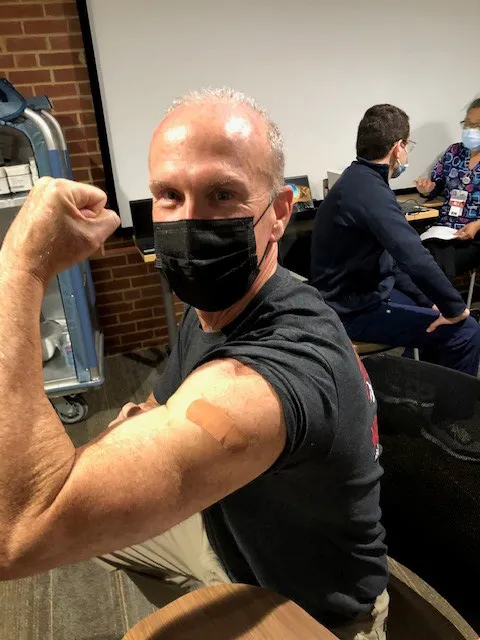
What precautions will you continue to take when you are deployed, if any?
I will continue to wear my mask and stay socially distant.
We don’t know enough about the transmission of COVID-19 after an individual is vaccinated. The focused research question was, “Does the vaccination cut down the risk of a serious COVID-19 illness?” The data say “yes” so far. But that means we don’t know yet about other secondary questions, such as whether a vaccinated person can transmit COVID-19 to someone who is not vaccinated.
Here’s the way I look at it right now. Pre-deployment, we also get vaccinated for another virus – rabies. This doesn’t mean that I’m willing to play with strange animals while I’m abroad. While this example is not perfect regarding COVID-19 transmission, perhaps it offers a lens in which to operate until we know more about both the vaccine and COVID-19 itself.
What message would you like to tell others who are skeptical about the vaccine?
If we can all protect those who are most vulnerable, we can get through this. We have learned so much in such a short period of time. The big difference between when it started and now is that we’re ready. We’re better at screening, testing and treating COVID-19.
While the vaccine is rolling out, we should continue to improve those aspects of our health under our control such as wearing masks, staying socially distant, exercising, cutting down on smoking, and eating a healthy diet. Look out for your neighbors, friends and family members. Social distancing doesn’t have to mean complete isolation. Check in on them. The mental health aspects of the pandemic require all our attention.
Dr. Minogue has been a Medical Director with Blue Cross NC for five years. We look forward to his safe return home in summer 2021.
SEE ALSO: Get The Facts About COVID-19 Vaccines: 5 Rumors Debunked, Prepare For The Dual Hit Of Flue & COVID-19, Medicare Advantage for Veterans, What To Expect With Your Child’s COVID-19 Vaccine
Interested in learning more about health plans? Contact the Health Plans of NC Independent agent on this webpage.
Ready to get started?
Related Articles
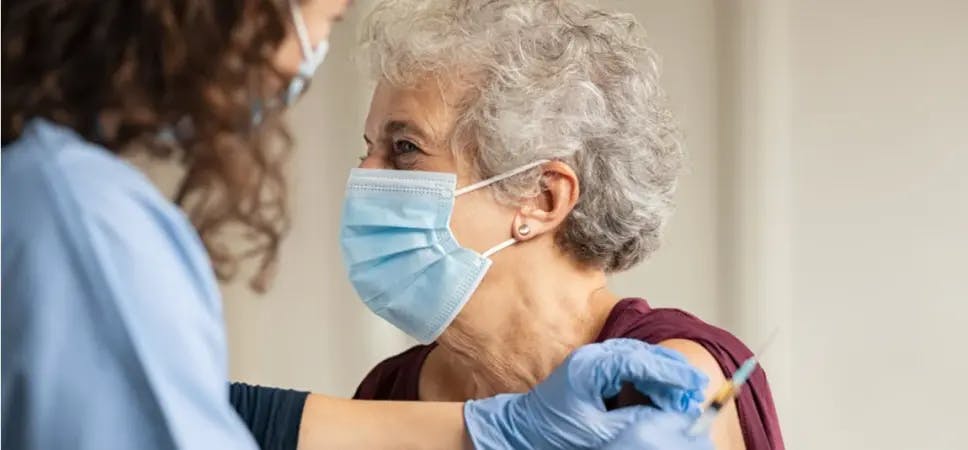
Get The Facts About COVID-19 Vaccines: 5 Rumors Debunked
It’s reasonable to have concerns about a new vaccine.
To help you separate fact from fiction, Blue Cross and Blue Shield of North Carolina Medical Directors are breaking down some of the most common myths.
Blue Cross NC
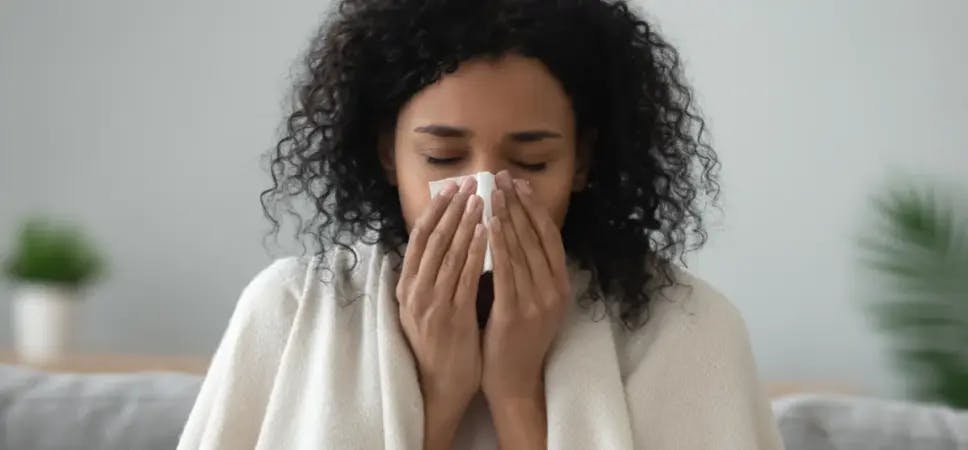
Prepare For The Dual Hit Of Flu & COVID-19
It’s especially troubling since people may be postponing their annual physicals or putting off regular vaccinations. But getting your flu shot is one way to protect yourself – and others – this winter.
COVID-19 vs. influenza: What’s the difference?
Dr. Larry Wu

Reimbursement Available For Over-The-Counter Covid-19 Rapid Tests
Health Plans of NC, Kelly Quinn
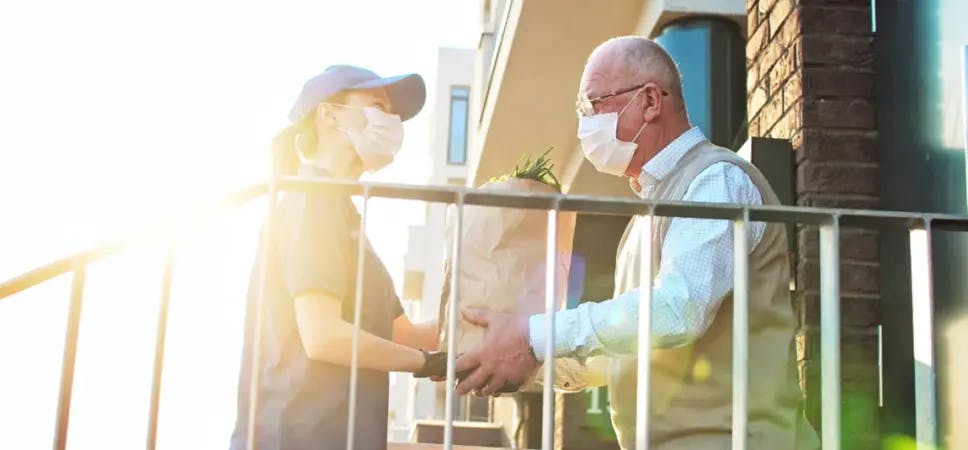
Supporting Our Seniors Amid COVID-19
Adjusting to our new routines during COVID-19 looks different for everyone. For some, it’s fewer trips to the mall or more meals at home. But for at-risk individuals, it can mean complete isolation.
As we now know, COVID-19 causes the most severe health issues for adults over 60, with particularly fatal results for those 80 years and older. This is forcing many senior citizens in our communities to stay indoors. While it helps limit coronavirus exposure, it also limits interactions with friends and family.
Blue Cross NC
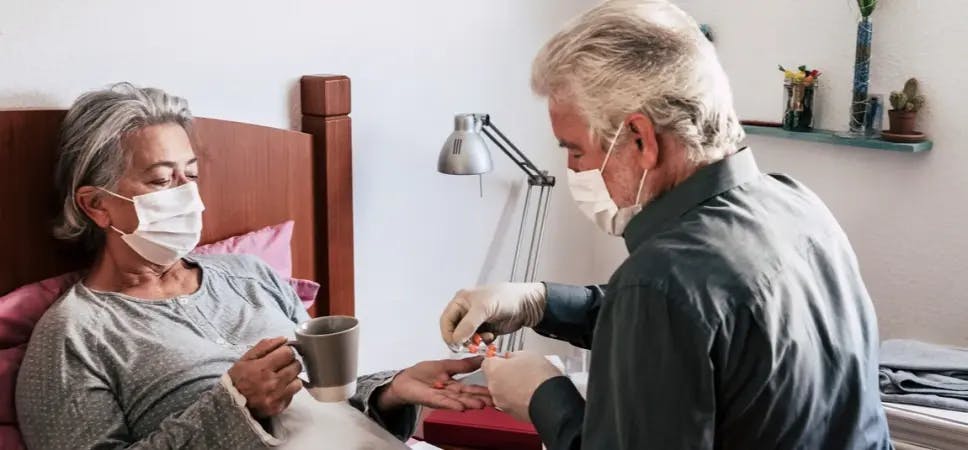
Tips To Care For Someone With COVID-19
Undoubtedly, everyone has developed new skills or taken on new responsibilities since the pandemic began. Some parents have become teachers. Some people have mastered online grocery shopping. Many have done both while also taking on the role of a caregiver for a loved one who has been sick with COVID-19. In fact, according to a recent Health of America report, 55% of current caregivers would not have identified as caregivers before COVID-19. And 61% of Americans are worried about caring for a friend, neighbor or family member with COVID-19.[1]We understand. Caring for someone who has COVID-19 comes with many challenges. How do you stay healthy while caring for someone with a highly contagious virus? Here are some tips to keep in mind.
Tips to Care for Your Loved One
Blue Cross NC
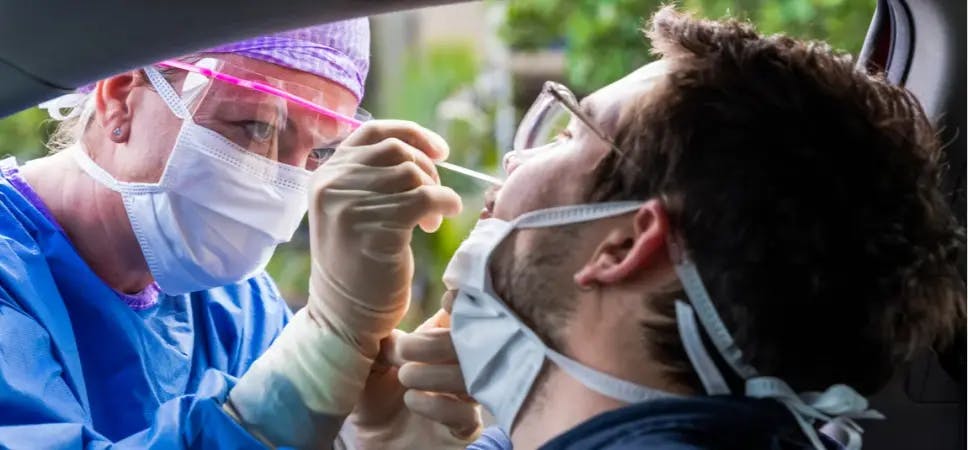
What To Do If You Have Symptoms Of COVID-19
During a time with so many unknowns, knowing what to do if you think you have COVID-19 can be challenging. If you’re experiencing symptoms – such as trouble breathing, cough, fever or chills, sore throat, headache, body aches, nausea, vomiting, loss of taste or diarrhea – you should take the following steps.
1. Call your doctor.
Blue Cross NC